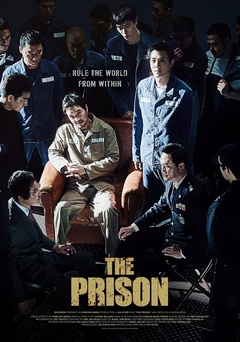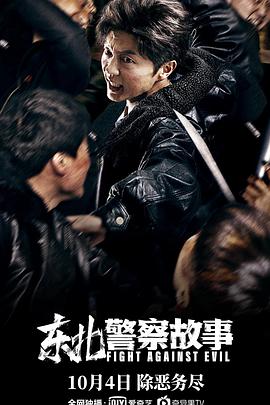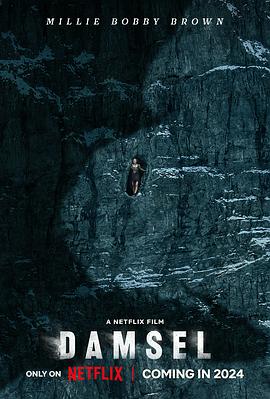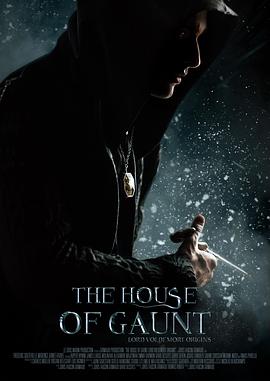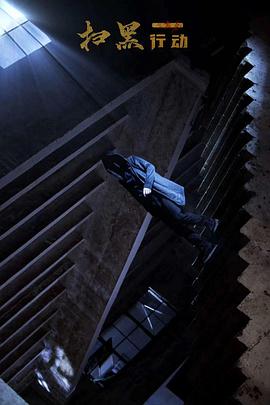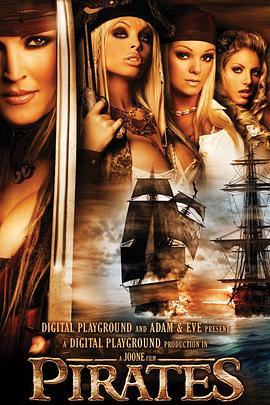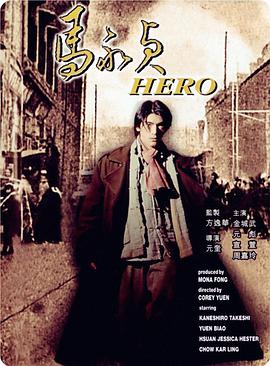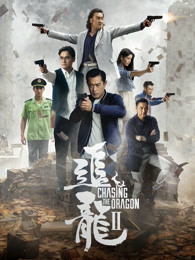- 西瓜云2
- 西瓜云3
- 西瓜云1
- HD中字
- HD
- 1080P
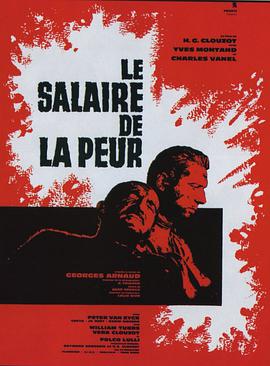
恐惧的代价
- 主演:
- 伊夫·蒙当,夏尔·瓦内尔,彼得·范·埃克,福尔科·卢利,薇拉·克劳佐
- 备注:
- 更新1080P
- 类型:
- 动作片 剧情,惊悚,冒险
- 导演:
- 亨利-乔治·克鲁佐
- 年代:
- 1953
- 地区:
- 法国
- 语言:
- 未知
- 更新:
- 2024-04-19 12:03
- 简介:
- 马里奥(伊夫·蒙当YvesMontand饰)是一个人游荡懒散,不愿参加劳动的混混,在那个小镇里,所有的人都在找工作,可是没有一个人有正式的工作。就是这样一个贫穷的地方,每天还有无数人前来淘金,落魄的商人吉奥(查尔斯·文恩CharlesVanel饰)就是其中的一员。同时.....详细
马里奥(伊夫·蒙当YvesMontand饰)是一个人游荡懒散,不愿参加劳动的混混,在那个小镇里,所有的人都在找工作,可是没有一个人有正式的工作。就是这样一个贫穷的地方,每天还有无数人前来淘金,落魄的商人吉奥(查尔斯·文恩CharlesVanel饰)就是其中的一员。同时,命不久矣的鲁奇(FolcoLulli饰)和嚣张跋扈的班巴(彼得·范·埃克PetervanEyck饰)也出现在了当地坏人和好人混在一起的酒吧里,他们的目标只有一个,那就是赚钱。这时,500公里外的S•O•C石油公司的油井燃起了熊熊大火,为了灭火,必须有人驾驶着装有十吨硝化甘油的卡车开往此地,而对于公司的雇工来说,这无疑是自杀的举动,因为只要有任何一点点的颠簸和受热,十吨硝化甘油就将化为十吨威力无比的炸弹。无良的老板打起了混混们的主意,因为即使他们死了,也不会有工会来追究责任。马里奥、吉奥、班巴和鲁奇获得了这个危险的任务,并被允诺每人将有2000美金的酬劳。就这样,为了金钱,一行人将性命捏在手里,驶上了危险与恐惧并存的不归路。
A 4K-restoration screening in the Shanghai International Film Festival, Clouzot’s pièce-de-résistance is a vehement testimonial of his aptitude in orchestrating white-knuckle thrills and chills, meanwhile, it is also ascorching dissection of human's abject fear and cruelty.
Set up in the boondocks of Las Piedras, allegedly Venezuela, a posse of foreign deadbeats is vegetating under the blistering sun, jobless and hankering for a plane ticket to leave the purgatory, they are churlish opportunists and rowdy bar brawlers, among them stands the French ladies’ man Mario (a sexpot Montand), who toys with the affection of the barmy barmaid Linda (Mme Clouzot in her film debut), and has no qualms about jilting his benevolent Italian roommate Luigi (Lulli, truly the salt-of-the-earth type), to hobnob with his blow-in compatriot, the ex-gangster Jo (Vanel), fancying an easy way out, but the truth is, Jo is also at the end of his rope.
A perilous job opportunity emerges when the American corporation Southern Oil Company needs to transport nitroglycerin to extinguish a massive fire in the oil fields, four drivers are chosen to drive two trucks in conveyance of the highly explosive products in a 300-mile rugged haul, with no safety precautions at hand The sideswipe of American capitalistic avarice and callousness is pretty much in your face, yet, for these hardscrabble expatriates, $2,000is an offer too tempting to refuse, after some backhanded maneuver Jo gets the last spot to drive with Mario, while Luigi is paired with Bimba (Van Eyck, stolid and unbelievably cool), a taciturn German who endures a dark past.
Henceforth, Clouzot viz. the Gallic Hitchcock takes audience on an ensorcelling edge-of-the-seat road trip where one single substantial bump can cause their trucks to be blown up to smithereens, like a ticking bomb hanging over our heads. Compelling set pieces, a gripping turn on the precipice, and detonating an obstructing rock, one mobile, one static, are textbook paragon of tension-building and suspense-eliciting, not to mention the effect graced by Georges Auric’s captivating accidental music.
However, physical obstacles aside, it is the mental exertion that takes a heavy toll en route, Jo, the hard-nosed, savvy spiv, gradually yields to the mounting fear and his cowardice starts to turn Mario from his toady to a hectoring boss, sending contempt and verbal abuse to a humiliated Jo, up to a merciless last-ditch attempt knowingly leaving him mortally wounded, here Clouzot’s astutely differentiates true grit from Dutch courage, and examines the phallocratic pride with utter acumen, its reverberations is astounding, much also owing to the two protagonists’ unyielding tours-de-force, especially Vanel, completely devotes himself to the grueling condition (that petrol wallowing sequence is awestruck), and more credibly, he tenaciously enlivens Jo’s transformation from a despicable wide boy to a resigned old geezer, for whose aftermath we feel deeply sympathetic.
Our compassion towards Montand’s Mario also undergoes a sea change when the plot thickens, his raffish charm morphs into an admirable determination midway, until his ruthless color takes the upper hand, Montand perfectly showcases his marquee idol charisma, and hisbaptism-of-firetriumph is unqualifiedly hard-earned, but Clouzet ratchets up the morbid irony in its dizzy ending, as augured by its opening, the quartet’s fate is hanging on the same thread, negligible, expendable and inescapable.
Incontrovertibly, THE WAGES OF FEAR is a daunting progenitor for late comers to emulate but impossibly to surpass, denotes a hefty import of Clouzot’s unrivaled cinematic legacy, that reinvented narrative cinema with its high-octane vicariousness.
companion pieces: Clouzot’s DIABOLIQUES (1955, 9.2/10), LE CORBEAU (1943, 7.1/10).
"<>"" && "A 4K-restoration screening in the Shanghai International Film Festival, Clouzot’s pièce-de-résistance is a vehement testimonial of his aptitude in orchestrating white-knuckle thrills and chills, meanwhile, it is also ascorching dissection of human's abject fear and cruelty.
Set up in the boondocks of Las Piedras, allegedly Venezuela, a posse of foreign deadbeats is vegetating under the blistering sun, jobless and hankering for a plane ticket to leave the purgatory, they are churlish opportunists and rowdy bar brawlers, among them stands the French ladies’ man Mario (a sexpot Montand), who toys with the affection of the barmy barmaid Linda (Mme Clouzot in her film debut), and has no qualms about jilting his benevolent Italian roommate Luigi (Lulli, truly the salt-of-the-earth type), to hobnob with his blow-in compatriot, the ex-gangster Jo (Vanel), fancying an easy way out, but the truth is, Jo is also at the end of his rope.
A perilous job opportunity emerges when the American corporation Southern Oil Company needs to transport nitroglycerin to extinguish a massive fire in the oil fields, four drivers are chosen to drive two trucks in conveyance of the highly explosive products in a 300-mile rugged haul, with no safety precautions at hand The sideswipe of American capitalistic avarice and callousness is pretty much in your face, yet, for these hardscrabble expatriates, $2,000is an offer too tempting to refuse, after some backhanded maneuver Jo gets the last spot to drive with Mario, while Luigi is paired with Bimba (Van Eyck, stolid and unbelievably cool), a taciturn German who endures a dark past.
Henceforth, Clouzot viz. the Gallic Hitchcock takes audience on an ensorcelling edge-of-the-seat road trip where one single substantial bump can cause their trucks to be blown up to smithereens, like a ticking bomb hanging over our heads. Compelling set pieces, a gripping turn on the precipice, and detonating an obstructing rock, one mobile, one static, are textbook paragon of tension-building and suspense-eliciting, not to mention the effect graced by Georges Auric’s captivating accidental music.
However, physical obstacles aside, it is the mental exertion that takes a heavy toll en route, Jo, the hard-nosed, savvy spiv, gradually yields to the mounting fear and his cowardice starts to turn Mario from his toady to a hectoring boss, sending contempt and verbal abuse to a humiliated Jo, up to a merciless last-ditch attempt knowingly leaving him mortally wounded, here Clouzot’s astutely differentiates true grit from Dutch courage, and examines the phallocratic pride with utter acumen, its reverberations is astounding, much also owing to the two protagonists’ unyielding tours-de-force, especially Vanel, completely devotes himself to the grueling condition (that petrol wallowing sequence is awestruck), and more credibly, he tenaciously enlivens Jo’s transformation from a despicable wide boy to a resigned old geezer, for whose aftermath we feel deeply sympathetic.
Our compassion towards Montand’s Mario also undergoes a sea change when the plot thickens, his raffish charm morphs into an admirable determination midway, until his ruthless color takes the upper hand, Montand perfectly showcases his marquee idol charisma, and hisbaptism-of-firetriumph is unqualifiedly hard-earned, but Clouzet ratchets up the morbid irony in its dizzy ending, as augured by its opening, the quartet’s fate is hanging on the same thread, negligible, expendable and inescapable.
Incontrovertibly, THE WAGES OF FEAR is a daunting progenitor for late comers to emulate but impossibly to surpass, denotes a hefty import of Clouzot’s unrivaled cinematic legacy, that reinvented narrative cinema with its high-octane vicariousness.
companion pieces: Clouzot’s DIABOLIQUES (1955, 9.2/10), LE CORBEAU (1943, 7.1/10).
"<>"暂时没有网友评论该影片"}A 4K-restoration screening in the Shanghai International Film Festival, Clouzot’s pièce-de-résistance is a vehement testimonial of his aptitude in orchestrating white-knuckle thrills and chills, meanwhile, it is also ascorching dissection of human's abject fear and cruelty.
Set up in the boondocks of Las Piedras, allegedly Venezuela, a posse of foreign deadbeats is vegetating under the blistering sun, jobless and hankering for a plane ticket to leave the purgatory, they are churlish opportunists and rowdy bar brawlers, among them stands the French ladies’ man Mario (a sexpot Montand), who toys with the affection of the barmy barmaid Linda (Mme Clouzot in her film debut), and has no qualms about jilting his benevolent Italian roommate Luigi (Lulli, truly the salt-of-the-earth type), to hobnob with his blow-in compatriot, the ex-gangster Jo (Vanel), fancying an easy way out, but the truth is, Jo is also at the end of his rope.
A perilous job opportunity emerges when the American corporation Southern Oil Company needs to transport nitroglycerin to extinguish a massive fire in the oil fields, four drivers are chosen to drive two trucks in conveyance of the highly explosive products in a 300-mile rugged haul, with no safety precautions at hand The sideswipe of American capitalistic avarice and callousness is pretty much in your face, yet, for these hardscrabble expatriates, $2,000is an offer too tempting to refuse, after some backhanded maneuver Jo gets the last spot to drive with Mario, while Luigi is paired with Bimba (Van Eyck, stolid and unbelievably cool), a taciturn German who endures a dark past.
Henceforth, Clouzot viz. the Gallic Hitchcock takes audience on an ensorcelling edge-of-the-seat road trip where one single substantial bump can cause their trucks to be blown up to smithereens, like a ticking bomb hanging over our heads. Compelling set pieces, a gripping turn on the precipice, and detonating an obstructing rock, one mobile, one static, are textbook paragon of tension-building and suspense-eliciting, not to mention the effect graced by Georges Auric’s captivating accidental music.
However, physical obstacles aside, it is the mental exertion that takes a heavy toll en route, Jo, the hard-nosed, savvy spiv, gradually yields to the mounting fear and his cowardice starts to turn Mario from his toady to a hectoring boss, sending contempt and verbal abuse to a humiliated Jo, up to a merciless last-ditch attempt knowingly leaving him mortally wounded, here Clouzot’s astutely differentiates true grit from Dutch courage, and examines the phallocratic pride with utter acumen, its reverberations is astounding, much also owing to the two protagonists’ unyielding tours-de-force, especially Vanel, completely devotes himself to the grueling condition (that petrol wallowing sequence is awestruck), and more credibly, he tenaciously enlivens Jo’s transformation from a despicable wide boy to a resigned old geezer, for whose aftermath we feel deeply sympathetic.
Our compassion towards Montand’s Mario also undergoes a sea change when the plot thickens, his raffish charm morphs into an admirable determination midway, until his ruthless color takes the upper hand, Montand perfectly showcases his marquee idol charisma, and hisbaptism-of-firetriumph is unqualifiedly hard-earned, but Clouzet ratchets up the morbid irony in its dizzy ending, as augured by its opening, the quartet’s fate is hanging on the same thread, negligible, expendable and inescapable.
Incontrovertibly, THE WAGES OF FEAR is a daunting progenitor for late comers to emulate but impossibly to surpass, denotes a hefty import of Clouzot’s unrivaled cinematic legacy, that reinvented narrative cinema with its high-octane vicariousness.
companion pieces: Clouzot’s DIABOLIQUES (1955, 9.2/10), LE CORBEAU (1943, 7.1/10).
